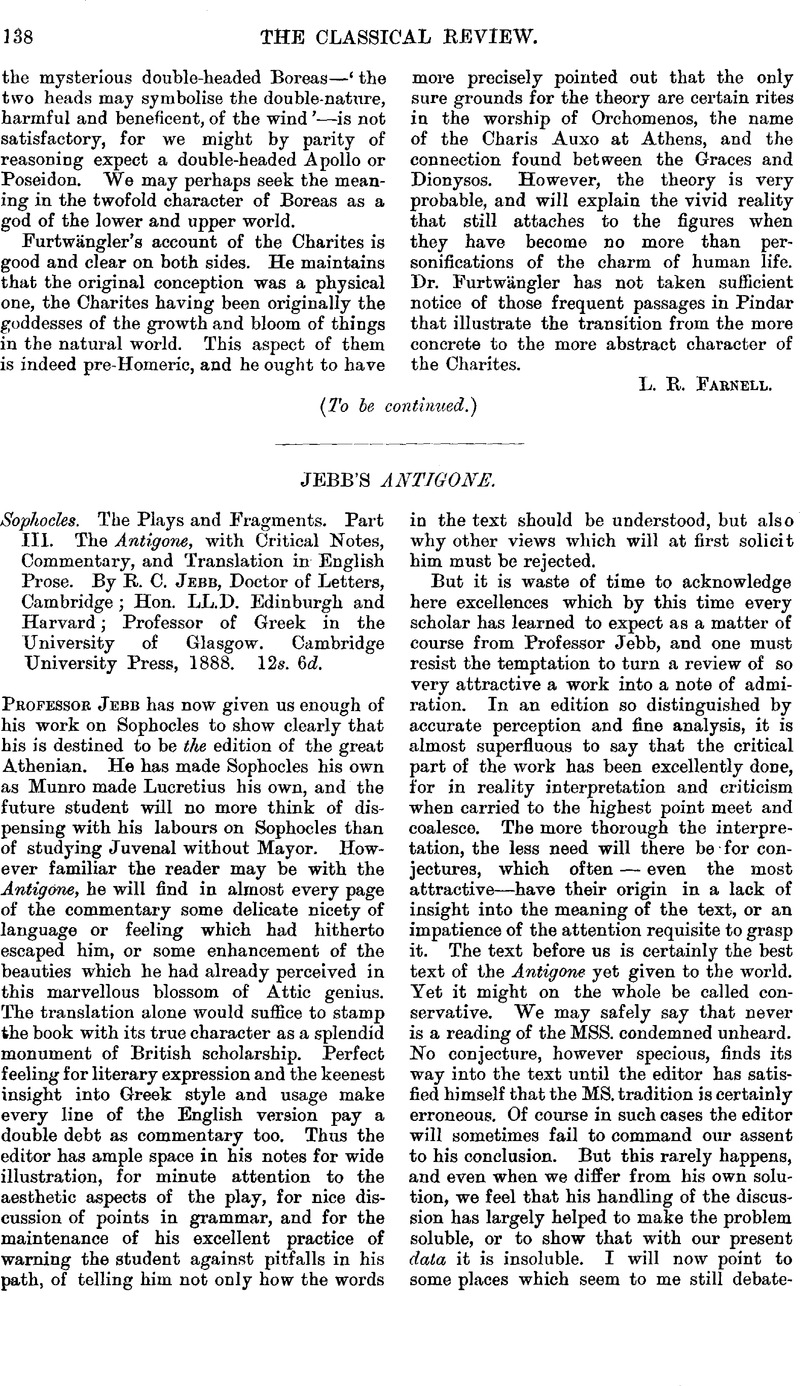No CrossRef data available.
Published online by Cambridge University Press: 27 October 2009

1 The word ![]() gave its name to the Helot's festival at Sparta. See the fragment of Epilyeus (Meineke Frag. Com. Graec. vol. ii. p. 887) beginning
gave its name to the Helot's festival at Sparta. See the fragment of Epilyeus (Meineke Frag. Com. Graec. vol. ii. p. 887) beginning ![]() In Eur. El. 810 ff, Aegisthus first kills the victim with a
In Eur. El. 810 ff, Aegisthus first kills the victim with a ![]() and then Orestes flays and joints it with a Dorian
and then Orestes flays and joints it with a Dorian ![]() and asks for a large Phthian
and asks for a large Phthian ![]() to cut open the brisket. When Demosthenes called Phocion
to cut open the brisket. When Demosthenes called Phocion ![]() he did not mean that Phocion was the ‘pruner’ (as the word is generally rendered) of his speeches. He meant that the blunt comments of Phocion were a ‘knock-down blow’ to his reasoned eloquence. The word for ‘pruning’ would have been
he did not mean that Phocion was the ‘pruner’ (as the word is generally rendered) of his speeches. He meant that the blunt comments of Phocion were a ‘knock-down blow’ to his reasoned eloquence. The word for ‘pruning’ would have been ![]() (Plat. Rep. i. 353). Of all orators of all times Demosthenes is the most completely free from redundancy. His speeches admit of no pruning.
(Plat. Rep. i. 353). Of all orators of all times Demosthenes is the most completely free from redundancy. His speeches admit of no pruning.
page 139 note 2 Olymp. vi. 82.